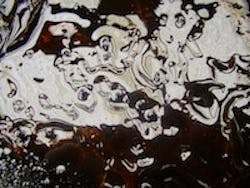ExxonMobil to Pay Civil Penalty Under Proposed Settlement for Louisiana Oil Spill
ExxonMobil Pipeline Co. has agreed to pay a civil penalty for an alleged violation of the Clean Water Act stemming from a 2012 crude oil spill from ExxonMobil’s “North Line” pipeline near Torbert, La., the Department of Justice and the Environmental Protection Agency (EPA) announced. Under the consent decree lodged in federal court, ExxonMobil will pay $1,437,120 to resolve the government’s claim.
The United States’ complaint, which was also filed in the U.S. District Court for the Middle District of Louisiana, alleges that ExxonMobil discharged at least 2,800 barrels (or 117,000 gallons) of crude oil in violation of Section 311 of the Clean Water Act. On April 28, 2012, ExxonMobil’s 20/22-in.-diamater pipeline ruptured near Torbert, about 20 miles west of Baton Rouge, and crude oil spilled into the surrounding area and flowed into an unnamed tributary connected to Bayou Cholpe.
“All businesses have an obligation to protect their workers, the local community and the environment in which they operate,” said Cynthia Giles, assistant administrator for Enforcement and Compliance Assurance at EPA. “EPA is committed to protecting communities by enforcing laws that reduce pollution in local waterways.”
“Oil spills into our nation’s waters endanger public health and the environment and warrant concerted enforcement efforts,” said Sam Hirsch, acting assistant attorney general for the Justice Department’s Environment and Natural Resources Div. “Today’s settlement achieves a just result and furthers our enforcement mission.”
The $1.4 million penalty is in addition to the costs incurred by ExxonMobil to respond to the oil spill and to replace the segment of ruptured pipeline. ExxonMobil is completing cleanup actions pursuant to an administrative order issued by the Louisiana Department of Environmental Quality. The company also continues to do follow-up work and to operate under a Corrective Action Order issued by the United States Department of Transportation, Pipeline and Hazardous Materials Safety Administration.
The Clean Water Act makes it unlawful to discharge oil or hazardous substances into or upon the navigable waters of the United States or adjoining shorelines in quantities that may be harmful to the environment or public health. The penalty paid for this spill will be deposited in the federal Oil Spill Liability Trust Fund managed by the National Pollution Fund Center. The Oil Spill Liability Trust Fund is used to pay for federal response activities and to compensate for damages when there is a discharge or substantial threat of discharge of oil or hazardous substances to waters of the United States or adjoining shorelines.
The proposed consent decree, lodged in the Middle District of Louisiana, is subject to a 30-day public comment period and court review and approval.
Source: EPA
